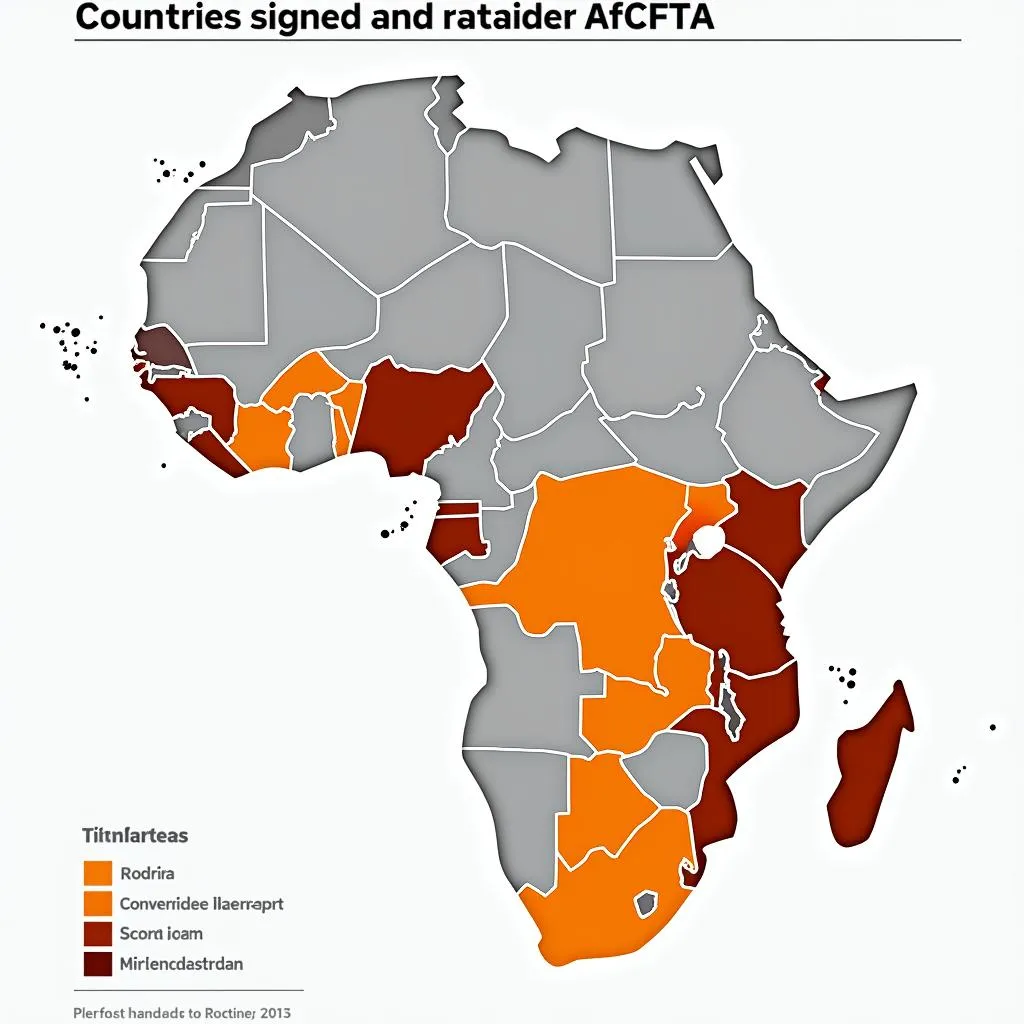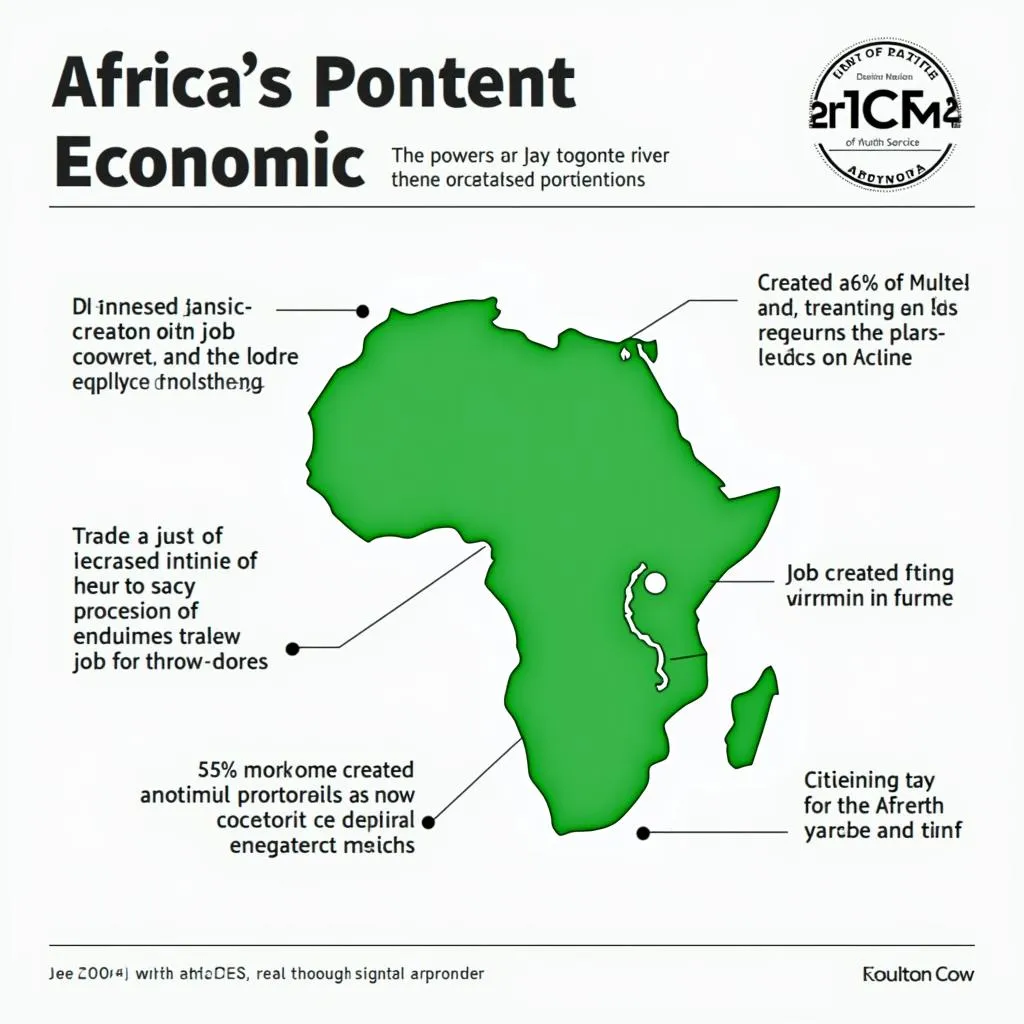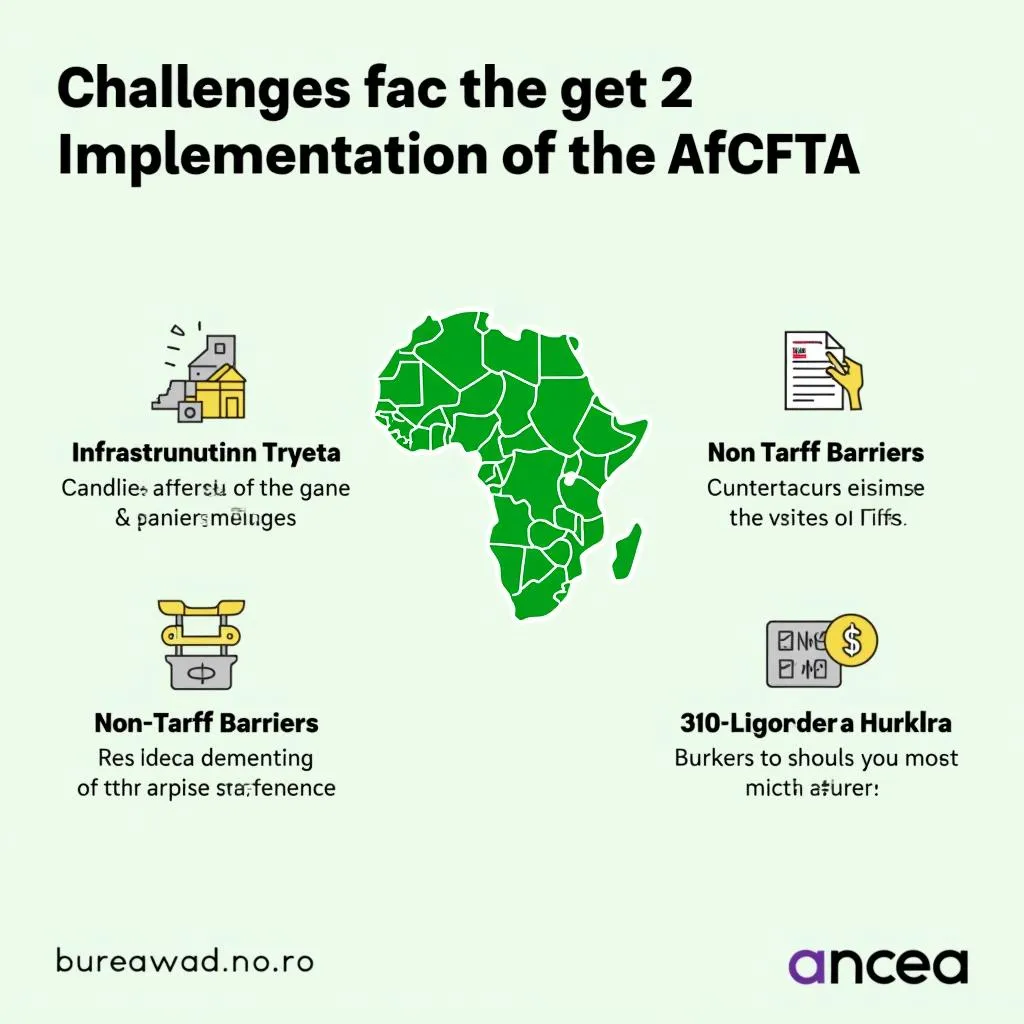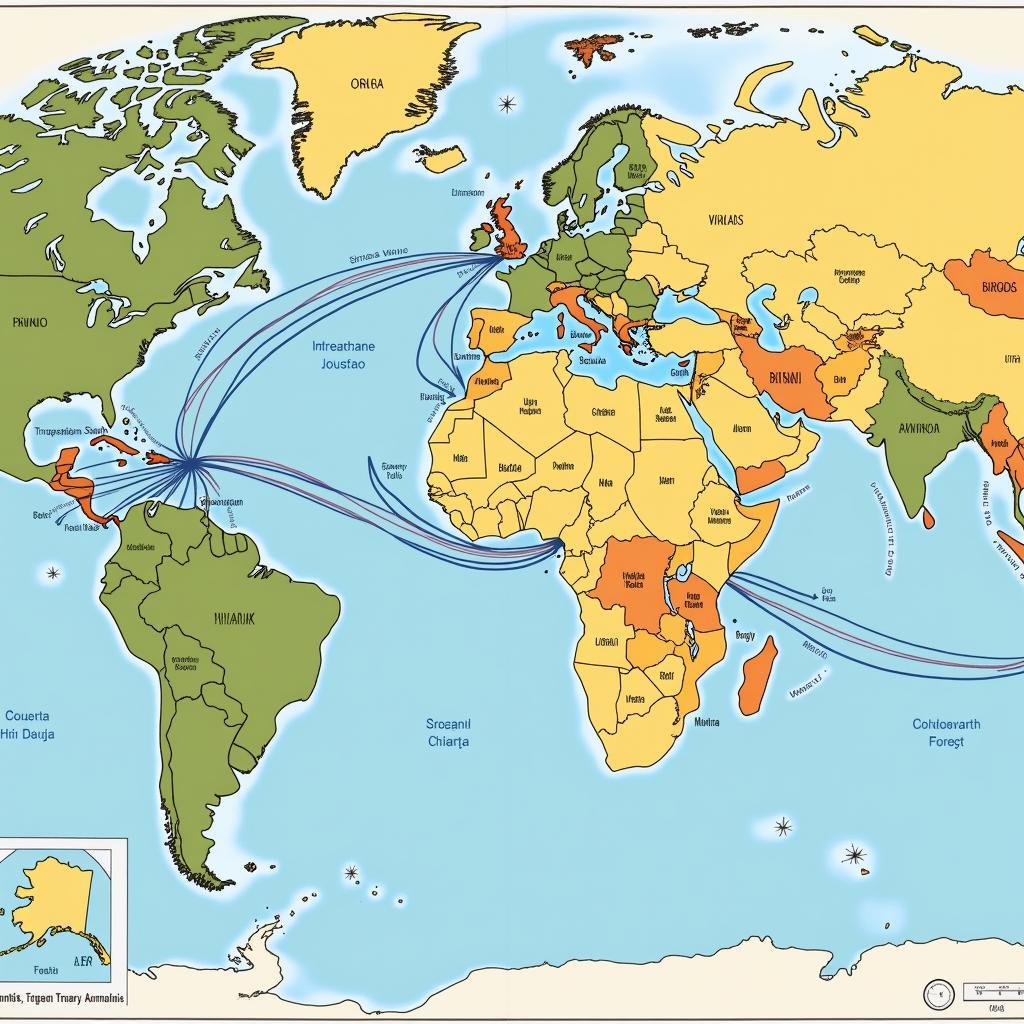The African Continental Free Trade Area (AfCFTA): A Gateway to Economic Prosperity
The African Continental Free Trade Area (AfCFTA), launched in 2019, is a monumental trade agreement aimed at creating a single market for goods and services across the continent. It promises to be a catalyst for economic growth and development, unlocking the vast potential of intra-African trade and propelling the continent towards prosperity. This article delves into the AfCFTA, its impact, challenges, and the future it holds for Africa.
A Vision for a Unified African Market
The AfCFTA is the largest free trade area in the world in terms of participating countries, spanning a population of over 1.3 billion people and a combined GDP of approximately US$3.4 trillion. Its overarching goal is to eliminate tariffs on 90% of traded goods among member countries, facilitate the movement of people and capital, and promote investment and industrialization.
This ambitious agreement envisions a unified African market, where goods and services flow freely, businesses expand their reach, and consumers benefit from increased choice and lower prices. It represents a bold step towards economic integration and collaboration, aiming to unlock the continent’s inherent potential for growth and development.
Economic Benefits and Opportunities
The potential economic benefits of the AfCFTA are immense. By removing trade barriers, the agreement is expected to:
- Boost Intra-African Trade: The AfCFTA aims to significantly increase intra-African trade, which currently stands at a meager 16%, compared to 59% in Europe and 68% in Asia. This untapped potential for regional trade represents a vast opportunity for African businesses to expand their markets and access new customers.
- Create Jobs and Increase Investment: Increased trade will create new jobs and stimulate investment in various sectors, boosting economic growth and development across the continent. The agreement’s focus on industrialization will create new industries, diversify economies, and enhance competitiveness.
- Improve Infrastructure and Logistics: To facilitate trade, the AfCFTA necessitates investments in infrastructure, logistics, and transportation networks. This will improve connectivity within the continent, making it easier to transport goods and facilitating trade growth.
- Foster Economic Diversification: The agreement promotes the development of non-traditional sectors, such as manufacturing, technology, and services. This diversification will reduce reliance on commodities and create a more resilient and diversified economy.
- Enhance Competitiveness: The AfCFTA will encourage businesses to innovate and improve their products and services to compete effectively in a larger market. This will lead to increased productivity, higher quality goods, and a more competitive African economy.
Challenges and Implementation Strategies
While the AfCFTA holds immense promise, it also faces significant challenges:
- Implementation Challenges: Successfully implementing a trade agreement of this magnitude requires robust institutional frameworks, effective policy coordination, and efficient dispute resolution mechanisms.
- Infrastructure Deficiencies: Many African countries lack the necessary infrastructure to support increased trade, such as efficient transportation networks, modern customs facilities, and reliable energy supply.
- Non-Tariff Barriers: Besides tariffs, non-tariff barriers, such as cumbersome customs procedures, bureaucratic hurdles, and complex regulatory frameworks, can hinder trade flows and create obstacles for businesses.
- Trade Diversification: Many African economies are still heavily reliant on commodity exports, which can make them vulnerable to price fluctuations. The AfCFTA needs to encourage diversification into other sectors to create a more resilient and sustainable economic foundation.
To overcome these challenges, the AfCFTA requires concerted efforts from member states and regional organizations:
- Harmonization of Policies and Regulations: Member states must harmonize their policies, laws, and regulations to create a level playing field for businesses and facilitate cross-border trade.
- Investment in Infrastructure: Governments need to invest in infrastructure development, including roads, railways, ports, and energy systems, to create a seamless trading environment.
- Streamlining Customs Procedures: Customs procedures should be streamlined and simplified to expedite the movement of goods and reduce delays.
- Trade Facilitation Programs: Member states need to implement trade facilitation programs to help businesses overcome the challenges of cross-border trade and provide support for export promotion.
The Future of the AfCFTA
The AfCFTA has the potential to transform Africa’s economic landscape and unlock its immense potential for growth and development. It represents a new era of economic integration and collaboration, paving the way for a more prosperous and interconnected Africa.
However, realizing this potential requires a sustained commitment from member states to overcome the challenges, implement necessary reforms, and work collaboratively to create a conducive environment for trade and investment. The success of the AfCFTA will depend on the willingness of African governments and businesses to embrace this transformative opportunity and work together to build a more integrated and prosperous Africa.
FAQs
Q: What are the main objectives of the AfCFTA?
A: The AfCFTA aims to eliminate tariffs on 90% of traded goods among member countries, facilitate the movement of people and capital, and promote investment and industrialization.
Q: How will the AfCFTA benefit African businesses?
A: The AfCFTA will open up new markets for African businesses, allowing them to access a larger customer base and expand their operations. It will also create new opportunities for investment and job creation.
Q: What are the main challenges facing the AfCFTA?
A: The AfCFTA faces challenges such as implementing the agreement effectively, addressing infrastructure deficiencies, overcoming non-tariff barriers, and promoting trade diversification.
Q: What are the potential impacts of the AfCFTA on the African economy?
A: The AfCFTA is expected to boost intra-African trade, create jobs, increase investment, and enhance the competitiveness of the African economy.
Q: What role can African governments play in the success of the AfCFTA?
A: African governments must work together to harmonize their policies, invest in infrastructure development, streamline customs procedures, and implement trade facilitation programs to support the success of the AfCFTA.
 Map of the African Continental Free Trade Area
Map of the African Continental Free Trade Area
 Economic Impact of the AfCFTA
Economic Impact of the AfCFTA
 Challenges Facing the AfCFTA
Challenges Facing the AfCFTA
This is just the beginning of the journey toward a unified African market. The AfCFTA holds the promise of a more prosperous and interconnected Africa, and its success will depend on the collective efforts of all stakeholders. By working together, African nations can create a more vibrant and dynamic economic landscape that benefits all Africans.


